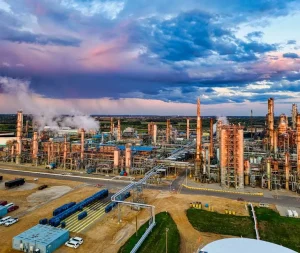Distributed Control Systems (DCS) Engineering is a crucial aspect of modern industrial processes. In this FAQ, we’ll break down what DCS Engineering is and how it operates, providing clear insights into its importance and functionality.
Introduction to DCS Engineering
DCS Engineering refers to the systemic approach that integrates physical elements for controlling complex industrial processes, ensuring smooth and efficient operations.
At the core of DCS Engineering is the focus on automation and control. Unlike traditional control systems, DCS distributes control functions across different locations, making it more resilient and reliable. This distribution not only enhances the system’s flexibility but also reduces the risks associated with system failures.
DCS Engineering relies on multiple controllers assigned to each process or machine, allowing for adaptive control tailored to specific requirements. This decentralized method enhances operational effectiveness across intricate processes, making it invaluable in industries that demand precision and adaptability.
Key Components of a DCS
A typical DCS includes controllers, input/output modules, operator interfaces, and networking components, all of which work together to manage and control industrial processes.
Controllers are the brains of the operation, executing specific control tasks. These controllers receive data from input modules, process this information, and send commands back through output modules. This back-and-forth communication is essential for maintaining optimal process conditions.
Operator interfaces are crucial for providing human operators with real-time data visualization, ensuring that the entire process can be monitored and fine-tuned as necessary. These interfaces often come with sophisticated software that allows for detailed process analysis and more informed decision-making.
How Does DCS Engineering Function?
DCS operates by decentralizing control and enabling real-time data processing, allowing for precise control over various process parameters across multiple locations within an industrial setup.
By decentralizing control architecture, DCS systems can process extensive data quickly and efficiently. This real-time data processing ensures prompt response to any deviations, maintaining system stability and performance. This level of agility is particularly beneficial for adapting to varying production demands.
Interconnectivity within DCS systems is facilitated through robust networking components. These components ensure seamless communication between the various controllers and operator interfaces, promoting unified control over complex operations.
Benefits of Using DCS
Utilizing DCS Engineering offers numerous advantages, including improved safety, enhanced operational efficiency, better data management, and reduced operational costs.
Increased automation within DCS leads to enhanced safety, as automated controls can react faster and more consistently than human operators. By reducing the need for manual interventions, DCS minimizes the potential for human error, safeguarding your operations.
The ability of DCS to handle vast amounts of data also contributes to its efficiency. It can analyze this data to identify trends, enabling predictive maintenance. This proactive approach to maintenance reduces downtime and extends the life of your equipment.
Industries Utilizing DCS Engineering
Industries such as oil and gas, chemical manufacturing, power generation, and food and beverage heavily rely on DCS for streamlining their processes.
In the oil and gas industry, for instance, DCS aids in optimizing the extraction, refining, and distribution processes. By closely monitoring all phases of operation, DCS ensures maximum efficiency and safety even in hazardous environments.
Power generation facilities use DCS to maintain stable electricity production, manage energy loads, and ensure safety protocols are in place. With the increasing demand for sustainable power solutions, DCS helps these industries transition smoothly towards greener technologies.
Wrapping Up: The Significance of DCS Engineering
DCS Engineering plays a pivotal role in maintaining efficient and safe industrial operations. By understanding its components and functionalities, industries can harness its full potential for enhanced productivity and safety. For more information on how we can help your business integrate DCS, visit our homepage.






